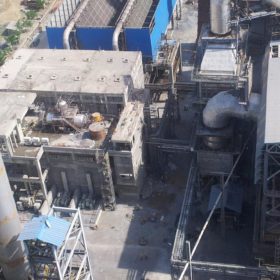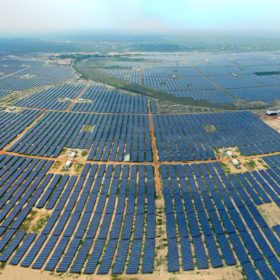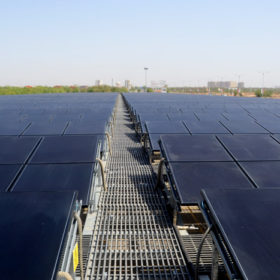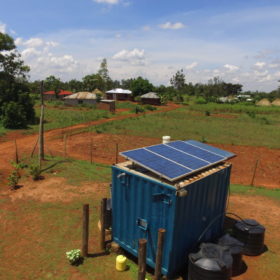India has the opportunity to build a new energy future
India is set to see the largest increase in energy demand of any country over next 20 years, a new International Energy Agency (IEA) report says, highlighting potential for policies and investment to accelerate clean energy transition.
Renewables cheaper than fossil fuel plants by 2030
A report by McKinsey & Company reinforces the widely-held view renewables will supplant fossil fuels in the energy system but also joins the chorus of voices warning the world is on track to fall well short of limiting global temperature rises this century to 1.5C.
India’s path away from climate disaster lies in the rapid growth of renewable power
The nation is already firmly positioned to lead the world in the clean energy revolution. Consolidating this position would unlock significant economic growth and competitiveness by attracting domestic and foreign investment, creating jobs, and improving public health.
Green recovery through energy efficiency
The Climate Group has reported that just 33 members of its global EP100 initiative avoided carbon dioxide emission by one billion metric tonnes purely through energy efficiency measures. Of this, 360 million metric tonnes—comparable to taking 77 million cars off the road for a year—was avoided in the last year alone.
Adani Group has the opportunity to lead India’s energy strategy
The Group’s renewable energy business (Adani Green Energy) has a market value of US$15.6 billion, which is 40% more than India’s largest thermal power generator NTPC—a company with 22 times as much capacity. The RE business is of serious global investor interest, but also materially exposed to the wider Group’s environmental, social and governance (ESG) standing. By committing to phased closure of coal plants, Adani Group could lower the risk to global capital access while aligning with the government’s vision for energy independence through fast-growing reliance on renewables.
Infosys turns carbon neutral
The Bengaluru-headquartered IT major has become carbon neutral for FY2020 across all emissions, 30 years ahead of the Paris Agreement’s 2050 timeline. The company reduced its energy consumption significantly with energy-efficiency measures, green buildings, renewable energy use, and carbon offset projects in the community to achieve this goal.
Rockefeller Foundation commits US$1 billion to catalyze a green recovery from pandemic
The new billion-dollar investment is aimed at scaling distributed renewable energy across developing countries in Africa, Asia and Latin America.
India still nowhere near energy sufficiency
The government is trying to harness renewables to increase domestic output but will need a more liberal energy market and to consider the structure of procurement auctions, cloying red tape and the financial travails of state utilities if it is to achieve its goals, says Rakshika Kaul of Amp Energy India.
India aims to become a hub for cutting-edge solar manufacturing
With a huge market and relevant manufacturing advantages, the country aspires to become a giga-scale manufacturing destination for the breakthrough PV technologies across the value chain.
Industry leaders pledge near-zero emissions by 2050
Heavy industry players Dalmia Cement (Bharat) and Hindalco are among the companies committed to enhancing energy efficiency, renewable energy, and circular economy across their member companies and supply chains. Other signatories included Siemens Energy India, Thermax, Shell Group of Companies India and Tata Consulting Engineers.














